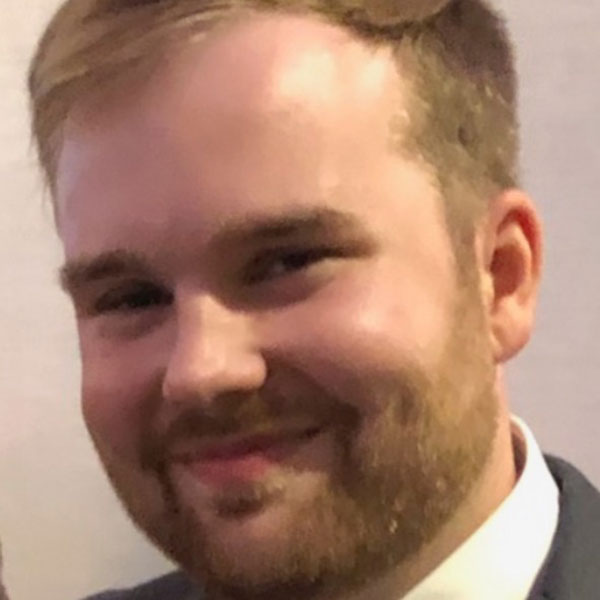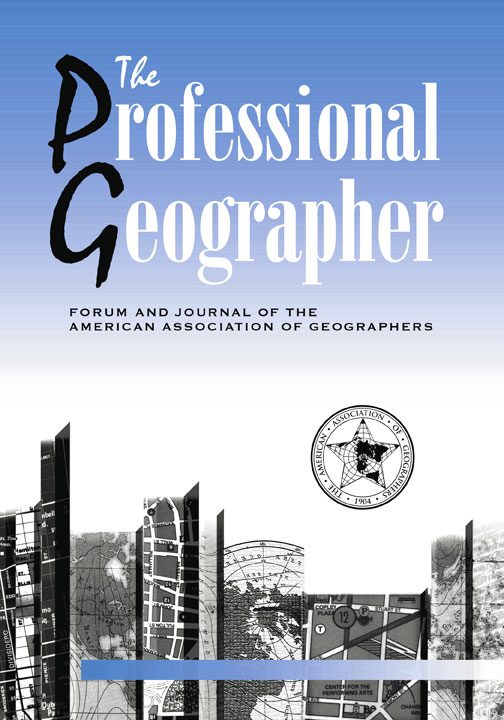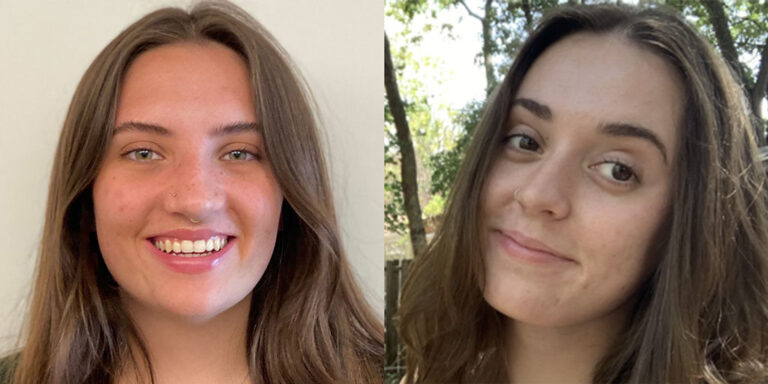Meet the AAG Journals Editors – Barney Warf and Blake Mayberry
Barney Warf and Blake Mayberry work on The Professional Geographer, one of three academic journals published by the AAG. The Professional Geographer, published four times a year, was initially a publication of the American Society of Professional Geographers but became a journal of the American Association of Geographers in 1949 after the two organisations merged. The focus of this journal is on short articles in academic or applied geography, emphasizing empirical studies and methodologies. These features may range in content and approach from rigorously analytic to broadly philosophical or prescriptive. The journal provides a forum for new ideas and alternative viewpoints.
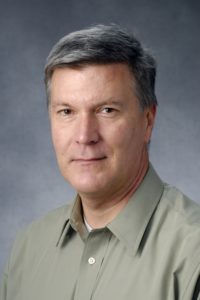 Barney Warf is the current Editor for The Professional Geographer and a Professor of Geography at the University of Kansas. His professional interests lie within the broad domain of human geography. Much of his research concerns information technology and telecommunications, notably geographies of the internet, including fiber optics, the digital divide, and e-government. He has also written on military spending, electoral geography, religious diversity, cosmopolitanism, and corruption. While most of his research involves secondary data, Barney’s most memorable research experiences have involved doing interviews in Latin America, particularly in Panama and Costa Rica, that added a human depth to the topics he researched. He has authored, co-authored, or co-edited eight research books, three encyclopedias, three textbooks, 50 book chapters and more than 100 refereed journal articles.
Barney Warf is the current Editor for The Professional Geographer and a Professor of Geography at the University of Kansas. His professional interests lie within the broad domain of human geography. Much of his research concerns information technology and telecommunications, notably geographies of the internet, including fiber optics, the digital divide, and e-government. He has also written on military spending, electoral geography, religious diversity, cosmopolitanism, and corruption. While most of his research involves secondary data, Barney’s most memorable research experiences have involved doing interviews in Latin America, particularly in Panama and Costa Rica, that added a human depth to the topics he researched. He has authored, co-authored, or co-edited eight research books, three encyclopedias, three textbooks, 50 book chapters and more than 100 refereed journal articles.
In addition to serving as editor of The Professional Geographer, he also currently serves as the editor of Geojournal, co-editor of Growth and Change, and edits a series of geography texts for Rowman and Littlefield publishers. For Barney, the best thing about being a journal editor is “reading about the diverse set of topics that authors write about. It’s truly astonishing the things people choose to research. Being an editor has exposed me to all sorts of issues and worldviews that I didn’t know existed.” For new authors, Barney encourages them to “keep an eye on important issues in the world like poverty and inequality. I worry that at times geography becomes overly ‘academic’ and too concerned with relatively obscure issues that have little bearing on the ‘real world.’”
Barney’s teaching interests include urban and economic geography, the history of geographic thought, globalization, and contemporary social theory. When asked about which area of geographic thought needs the most attention at this point in time, Barney believes “human geography today is at the confluence of several intersecting lines of theory, including poststructuralism, postcolonialism, feminism, queer theory, and the social construction of nature. I think the most interesting works are those that bring these perspectives into a creative tension with one another.”
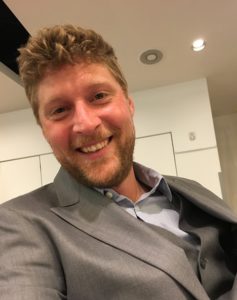
Blake Mayberry is the editorial assistant for the Professional Geographer where his role is to help screen manuscripts initially for style and then to assign appropriate peer reviewers. Blake is also currently Assistant Professor of Geography at Red Rocks Community College where he edits an on-campus student-oriented scholarly journal, teaches in the Water Quality Management Program (a four-year program), and serves on the City of Golden Planning Commission.
Blake’s path to become a geographer has been appropriately circuitous, but he could start in the beginning: as a child he slept with a globe instead of a teddy bear! At times Blake wanted to be Indiana Jones, and at other times, Leonardo DaVinci. He found that geography was the best way to satisfy the scientific, analytical side of my brain, while also indulging my more romantic, artistic side. As a career, He also found geography to be extremely rewarding. Blake has worked as an urban planner in the Omaha metropolitan area, and with environmental groups conducting ecological restoration and advocating for the protection of native ecosystems.
Blake has done research on topics ranging from urbanization and water resources in the southwestern United States, to the Indian Removal Period during the nineteenth century. However, his real passion is for grasslands. His master’s thesis at the University of Nebraska-Omaha focused on the effort to create a national park in western Iowa’s Loess Hills in the aftermath of the Farm Crisis, specifically, the role that media play in natural resource conservation policy. Expanding on that theme, his dissertation research at the University of Kansas involved an ethnographic study of environmentalists working to restore prairies on the Great Plains and how cultural identity and sense of place influence people’s actions to remake the landscape. In his spare time Blake enjoys reading maps, drawing maps, and exploring places real-life places that he find on maps.
Blake encourages prospective authors to read as much as they can before publishing: “Engage with the literature, all of it, in depth, all the time, all throughout your research… as someone who sees a lot of manuscripts come and go at the PG, the really successful ones, and the ones that end up having the most impact on the discipline, are the those that engage deeply with theory, and from multiple perspectives. Resist the temptation to get into a ‘citation silo,’ where you only engage with the literature on your subject matter from the perspective of your PhD advisor and their former students. There is nothing more I love than to see a manuscript on spatial regression that cites Tuan! I tell my students that your written work reflects your effort, and I’d say the same about being a scholar – your lit review tells us whether you did your homework or not. Doing your homework will go a long way towards preventing revise and resubmits, and outright rejections.”
